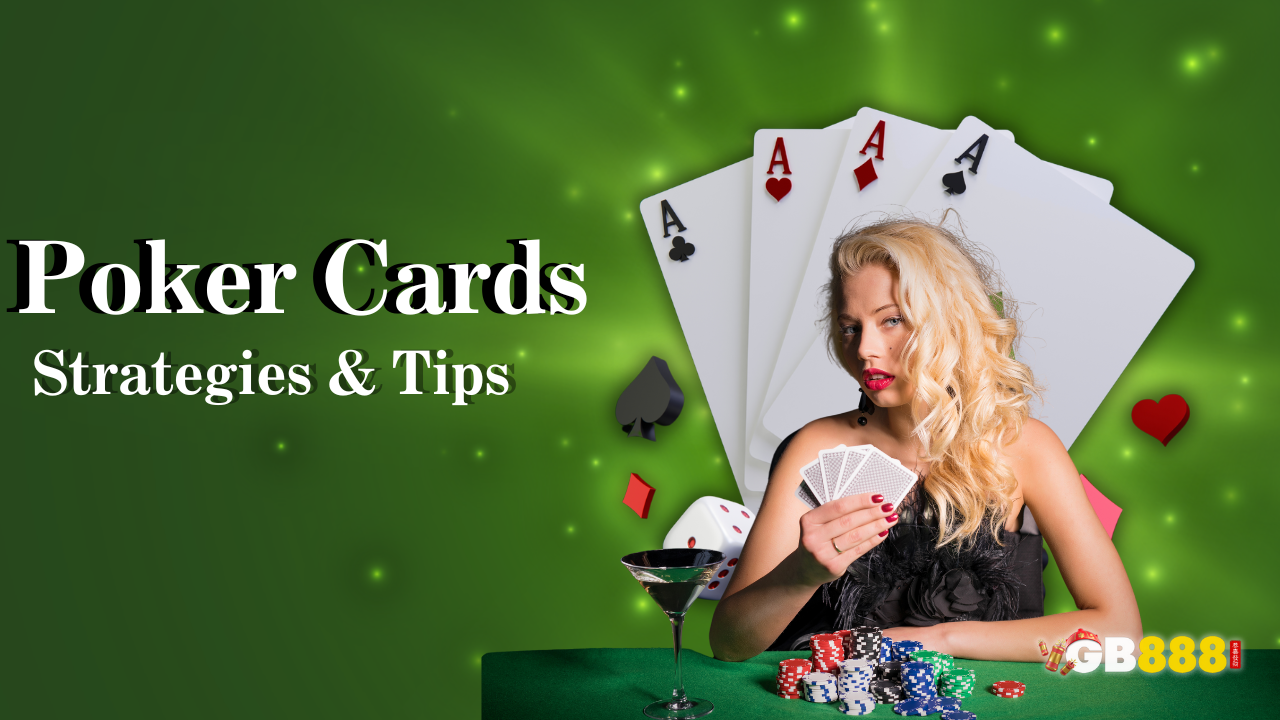Understanding Poker Cards
In the exciting game of poker, knowing about poker hands is super important. Each hand you get is like a puzzle piece, and understanding them helps you make smart decisions during the game. Whether you’re just starting out or you’ve been playing for a while, learning about poker cards is key. In this guide, we’ll break down the different types of hands in a way that’s easy to understand. By the end, you’ll feel more confident and ready to take on any hand that comes your way at the poker table. Let’s dive in and uncover the basics of poker together!

Basic Poker Strategies
Starting Hand Selection
One of the first decisions you’ll make in a poker game is which hands to play. Learning which starting hands are strong and which ones to avoid can greatly improve your odds of winning.
- Quality matters. Not all hands are equal. Learn which starting hands have the best potential for success.
- Fold wisely: Don’t hesitate to fold weak hands early in the game.
Bluffing
Bluffing is a strategic element of poker that involves betting or raising with a weak hand to deceive your opponents into thinking you have a stronger hand. Mastering the art of bluffing can be a powerful tool in your skill set.
Positional Play
Your position at the table can significantly impact your strategy. Playing more aggressively when you’re in a favorable position and more cautiously when you’re in a less advantageous position can give you an edge over your opponents.
- Position is power. Your seat at the table affects your strategy. Act last whenever possible.
- Adjust your play. Play differently based on your position relative to the dealer.
Rules and Hand Rankings
Familiarizing yourself with the rules of poker and understanding hand rankings is essential. Knowing which hands beat others and the order of priority can help you make better decisions during gameplay.
- Royal Flush: Ace, King, Queen, Jack, and 10 are all in the same suit.
- Straight Flush: Five cards in a row, all in the same suit.
- Four of a Kind: Four cards with the same number or face.
- Full House: Three cards of one number and two cards of another number.
- Flush: Five cards, all in the same suit, but not in order.
- Straight: Five cards in a row, but not all in the same suit.
- Three of a Kind: Three cards with the same number or face.
- Two Pairs: Two sets of matching pairs.
- One Pair: Two cards with the same number or face.
- High Card: The single highest card in your hand.
Advanced Techniques
Reading Opponents
Being able to read your opponents’ behavior and tendencies can give you valuable insights into their hands. Paying attention to betting patterns, body language, and other tells can help you make more informed decisions at the table.
Pot odds and Implied odds
Understanding pot odds and implied odds can help you determine whether it’s mathematically profitable to continue with a hand. Calculating these odds can assist you in making strategic decisions regarding when to call, raise, or fold.
Table Dynamics
Every poker table has its own unique dynamics, influenced by factors such as the playing styles of your opponents and the current chip stacks. Adapting your strategy to the specific dynamics of the table can help you stay ahead of the competition.
Bankroll Management
Managing your bankroll effectively is important for long-term success in poker. Setting limits on how much you’re willing to risk, avoiding chasing losses, and practicing proper bankroll management can help ensure that you stay in the game for the long haul.
Online Poker Etiquette
Chat Etiquette
When playing poker online, it’s important to maintain proper etiquette in the chat box. Avoiding excessive chatting during hands, refraining from using offensive language, and being respectful to other players can help create a positive playing environment.
Timing Decisions
Respect your opponents’ time by making timely decisions during gameplay. Constantly delaying your actions can disrupt the flow of the game and frustrate other players.
Respect for other Players
Treat your fellow players with respect and courtesy. Remember that everyone is there to enjoy the game, so avoid making sarcastic remarks or engaging in rude behavior.
FAQ's
Is poker purely a game of luck?
While luck plays a role in individual hands, poker is primarily a game of skill. Mastering strategies and understanding probabilities can significantly improve your chances of winning.
How do I improve my poker skills?
Keep playing often, learn about the game, and listen to experienced players. Think about how you play and find ways to get better.
Conclusion
Mastering poker cards requires a combination of strategy, skill, and practice. By understanding hand rankings, employing effective strategies, and practicing good etiquette, you can enhance your gameplay and increase your chances of success at GB888 Casino. Start applying these tips and techniques to take your poker game to the next level.
- Privacy & Policy
- Terms & Conditions
- About Us
- Contact Us
GB888 CASINO BETTING
- Address: 163 Lorong 1 Toa Payoh 01-1004, Singapore
- Email: gb888casino@gmail.com
- Hotline: +65 9184 8888
- Website: gb888casino.org